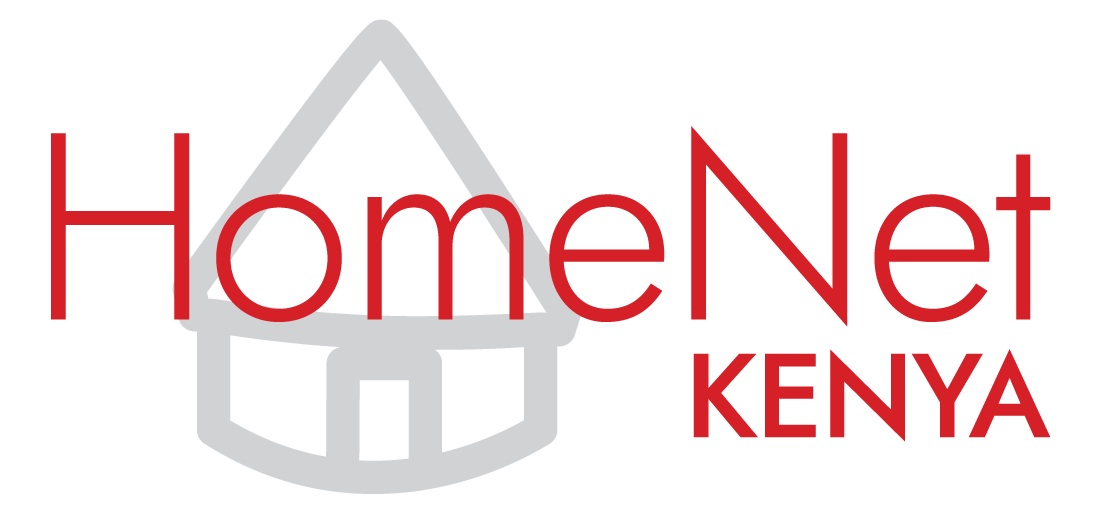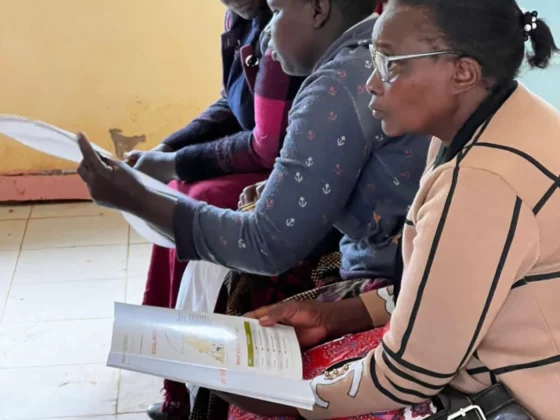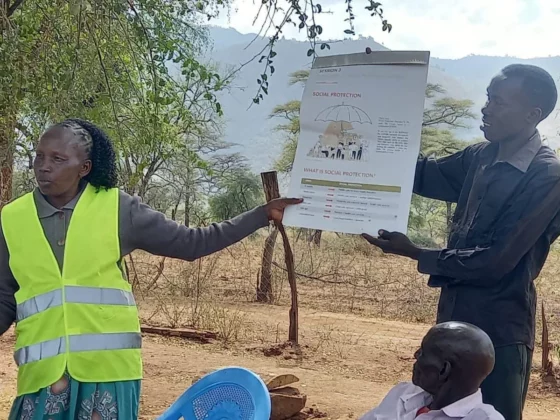Social Protection capacity building trainings are done using a guide “Social Protection for Homebased Workers” an illustrative training manual developed for home-based workers in Africa.
Social Protection is a collection of benefits that provide workers with security against life cycle, economic or environmental risks and vulnerabilities.
Social Protection is a human right and labour right that consists of policies and programmes designed to protect people from shocks and stresses throughout their lives. It can include safety nets, social insurance schemes, labour market regulations or facilitated access to essential services.
Social Protection has 3 components;
1. Social Assistance
Most social assistance programmes are to help or save individuals and households living in poverty or vulnerable populations, and are usually financed from the general government budget not requiring contributions from the workers. This can either be cash or in kind (such as food subsidies, Inua Jamii, Cash transfer programmes and school feeding programmes). Many informal workers do not qualify or cannot access these social assistance programs because they are not deemed sufficiently poor or, as adults of working age, are not included within targeted groups.
2. Social Insurance
Social Insurance requires contributions from workers and employers and the government. The state or the government runs the social insurance system in consultation with employers and workers through tripartite interaction. Examples of Social Insurance include; National Hospital Insurance Fund (NHIF), National Social Security Fund (NSSF). The premium payments are pooled together and redistributed to support people in compensating or partially replacing for their income when they have to face the risks (illness, losing job or working capacity), reducing pressure on the social assistance system.
3. Social Services
Social Services are financed through general taxation or provided by private institutions that informal workers can access and help in protecting their income in case of life cycle risks. Social Services include; Child care, Primary health care, primary education and elder care services. There are many examples of social protection programmes across Africa. However, this does not mean that HBWs have access to these different programmes. It does show us that there is a basis to build social protection systems that include more HBWs in all countries.







